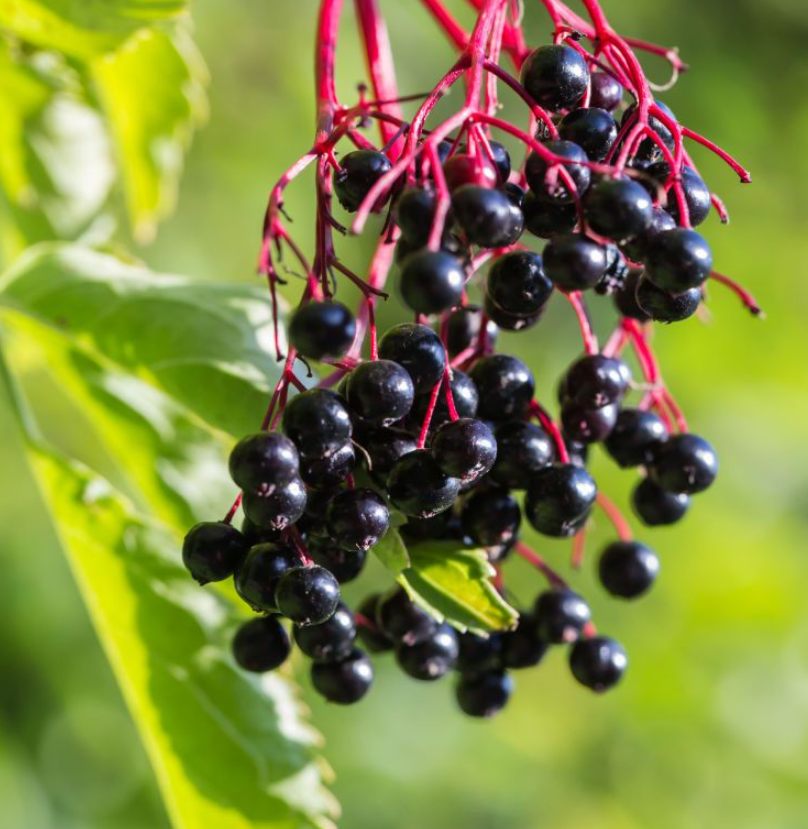The Adams Elderberry Plant : Cultivation, Benefits, and Uses
The Adams elderberry shrub is an ornamental, medicinal and culinary wonder that was part of the Sambucus genus for a very long time. This essay covers the growing of the Adams elderberry, its many uses and benefits with as much personal testimony, tips from the experts, and stories as possible to make the topic interesting.

Planting the Adams Elderberry Plant.
Adams elderberry, which is a species of Sambucus canadensis native to North America. This shrub is well-known for large dark purple berries and showy white flowers. The plant can grow well in many different conditions and is suitable for both amateur and professional gardeners alike.
Growing Conditions
Adams elderberries like moist, dry soil with a slightly acidic pH between 5.5 and 6.5. They like full sun, but are fine with partial shade. Growing elderberries myself made me aware that watering often in the first year when plants get their roots in makes all the difference. But don’t overwater to keep from root rot.
Expert Tip:
If planting elderberries, space them about 6-10 feet apart. Not only is this a good air flow, thus minimising fungal infections, but it leaves plenty of room for the plant’s massive expansion.
Pollination and Propagation
It self-fertils on the Adams elderberry, but planting two elderberries in the same area encourages pollination and gives you more fruit. I used to pair Adams with York and the fruit yield growth was jaw-dropping. You can propagate it via cuttings or seedlings – you can do it in early spring.
Maintenance
You need to prune elderberry plants. By removing dead or weak canes during rest, you’re making them grow normally. Elderberries, from what I can see, do better with annual trimming: stronger plants and a richer crop.
Adams Elderberry Plant Health Benefits: Adams Elderberry Plant Health Benefits:
It’s not just beauty that has made the elderberry renowned. It is an nutrient powerhouse and comes with a number of health and environmental advantages.
Nutritional Profile
Elderberries contain antioxidants, vitamin A and C, and fiber. They’re also reported to have a high level of flavonoids, which reduce oxidative stress and inflammation, which lowers the likelihood of chronic disease. This has also been the first elderberry syrup I’ve consumed during flu season, and the impact on my immunity has been amazing.
Expert Tip:
The elderberries are always cooked first, because raw berries have sambunigrin which upsets the stomach.
Medicinal Uses
Elderberries have been a part of ancient medicines for centuries. They’re very good against viruses – particularly the common cold and flu. These theories are supported by modern research, which indicates elderberry extracts prolong and ease colds.
Then once, in the middle of a very bitter winter, I steeped dried elderberries with honey and lemon. This one-two punch didn’t only relieve my throat, it also speeded up my recovery.
Environmental Impact
More than human health, Adams elderberry also forms central parts of local ecosystems. Its flowers support pollinators, such as bees and butterflies, and its berries sustain birds and animals. My own backyard was the same – elderberries planted, and biodiversity increased, producing a vibrant, healthy garden landscape.
Usages of Adams Elderberry Plant.
Elderberries have an unparalleled variety of uses ranging from cooking to medicine to decorative.
Culinary Applications
The dark, tart flavor of elderberries can be used in many different dishes. Elderberry pies, jams and syrups are among my personal favourites. Home-made elderberry syrup is simple: just simmer the berries in water with cinnamon and cloves, strain and sweeten with honey. This syrup is perfect on pancakes or as a mixer for cocktails.
Personal Tip:
Always test the syrup while making it. Its sweet/sour balance can be altered according to your liking.
There are elderflowers that can also be eaten — and they can be used to make elderflower cordial or fritters. I once put elderflower syrup in sparkling water and made a summer drink that everybody liked for family get-togethers.
Medicinal Preparations
You’ll also find elderberries in herbal teas, syrups, tinctures, and lozenges. There’s also an antioxidant and mild diuretic effect to elderflower tea. My friend who is a herbalist swears by elderflower oil for itchiness.
Expert Tip:
Make elderberry remedies at home always make sure the berries are completely ripe, unripe berries have higher concentrations of toxins.
Decorative and Landscaping Use
The foliage and flowering plant, Adams elderberry is a popular landscaping plant. As a hedge, windbreak, or decorative shrub. I put elderberries on the fence around my yard to keep them out, and was amazed at how quickly they turned into a full, pretty hedge.
Problems and Answers on Elderberry Growing How to Grow Elderberries.
The Adams elderberry is a low-maintenance plant, but not perfect. Pests, like aphids, and diseases, like powdery mildew, are usual problems. Periodic checks and organic sprays, including neem oil, have worked for me.
Another challenge is harvesting. Birds love elderberries just as much as we do, and I’ve seen my harvest cut down by a visit from the birds. Netting the plants when they were fruiting was a simple and quick fix.
